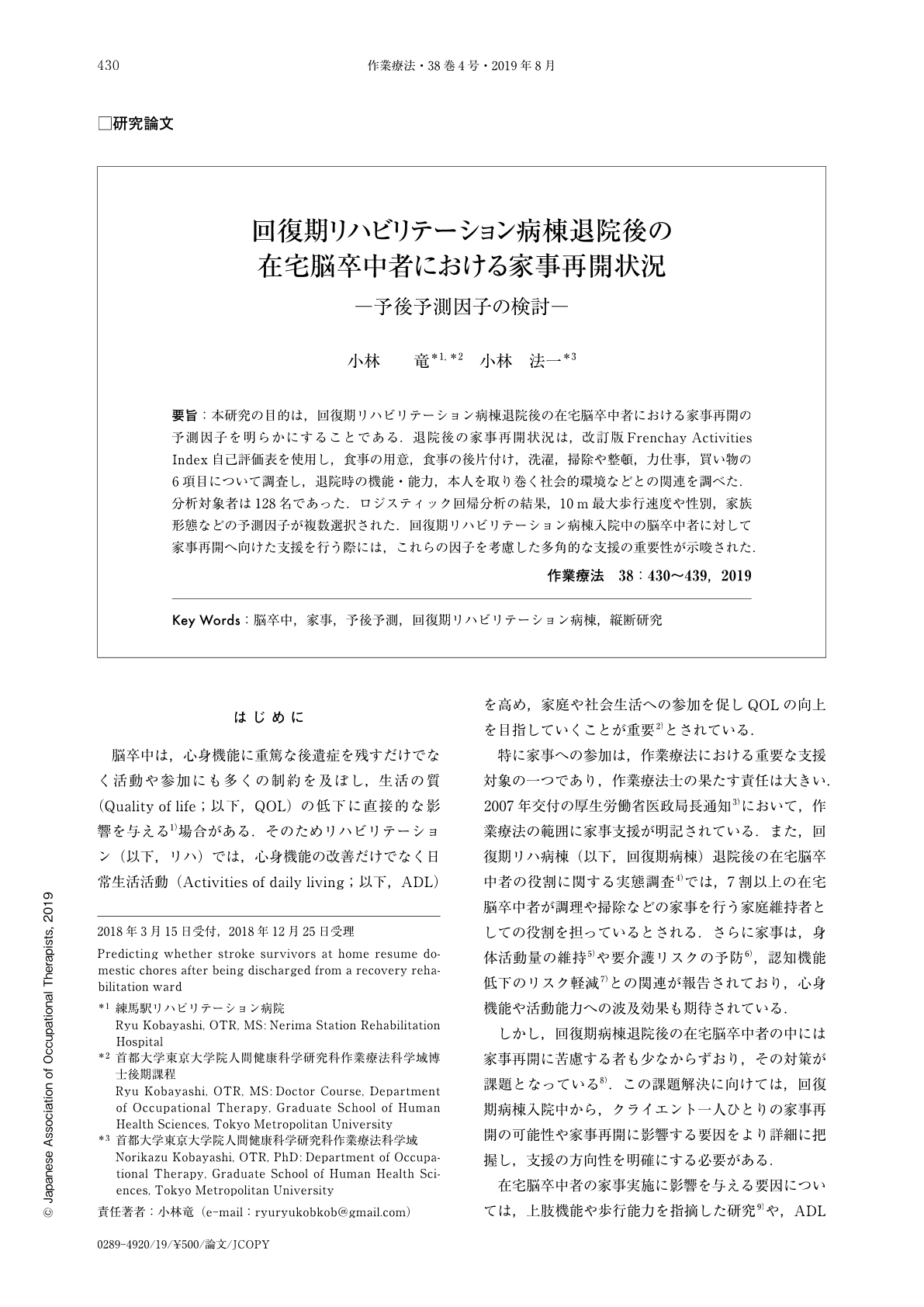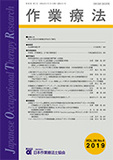Japanese
English
- 販売していません
- Abstract 文献概要
- 1ページ目 Look Inside
- 参考文献 Reference
- サイト内被引用 Cited by
要旨:本研究の目的は,回復期リハビリテーション病棟退院後の在宅脳卒中者における家事再開の予測因子を明らかにすることである.退院後の家事再開状況は,改訂版Frenchay Activities Index自己評価表を使用し,食事の用意,食事の後片付け,洗濯,掃除や整頓,力仕事,買い物の6項目について調査し,退院時の機能・能力,本人を取り巻く社会的環境などとの関連を調べた.分析対象者は128名であった.ロジスティック回帰分析の結果,10m最大歩行速度や性別,家族形態などの予測因子が複数選択された.回復期リハビリテーション病棟入院中の脳卒中者に対して家事再開へ向けた支援を行う際には,これらの因子を考慮した多角的な支援の重要性が示唆された.
This research aimed to predict whether or not stroke survivors discharged from a recovery rehabilitation ward resume domestic chores. Using the Self-Rating Frenchay Activities Index, we investigated whether or not stroke survivors after being discharged resumed the following six chores: Preparing meals, washing up, washing clothes, light housework, heavy housework, and local shopping. After that, we examined the relationship between the subjects' abilities to resume domestic chores at discharge and their social environment. 128 stroke survivors participated in the study. As a result of logistic regression analysis, several predictive factors such as sex, household composition, and maximum walking speed for 10m were selected. We suggest it is important to focus on these factors when supporting stroke survivors in recovery rehabilitation wards to help them resume domestic chores after discharge.

Copyright © 2019, Japanese Association of Occupational Therapists. All rights reserved.


